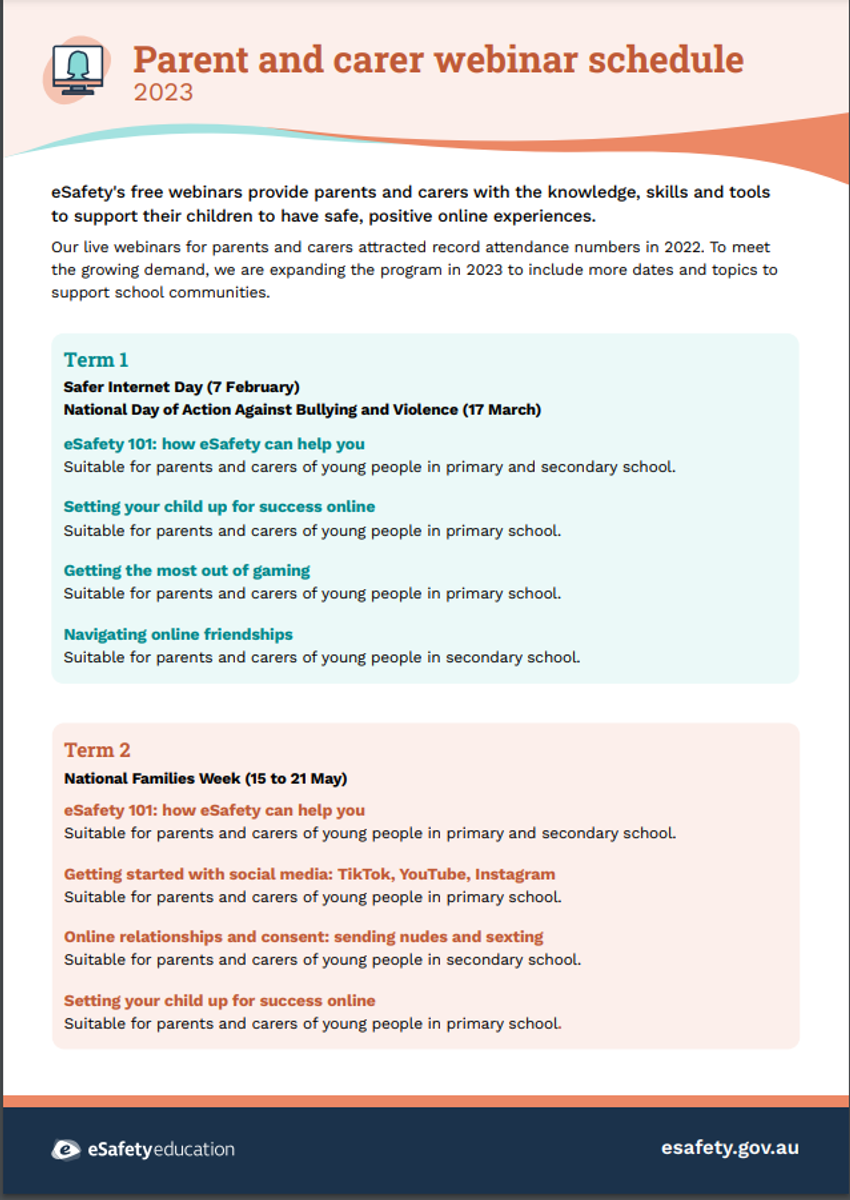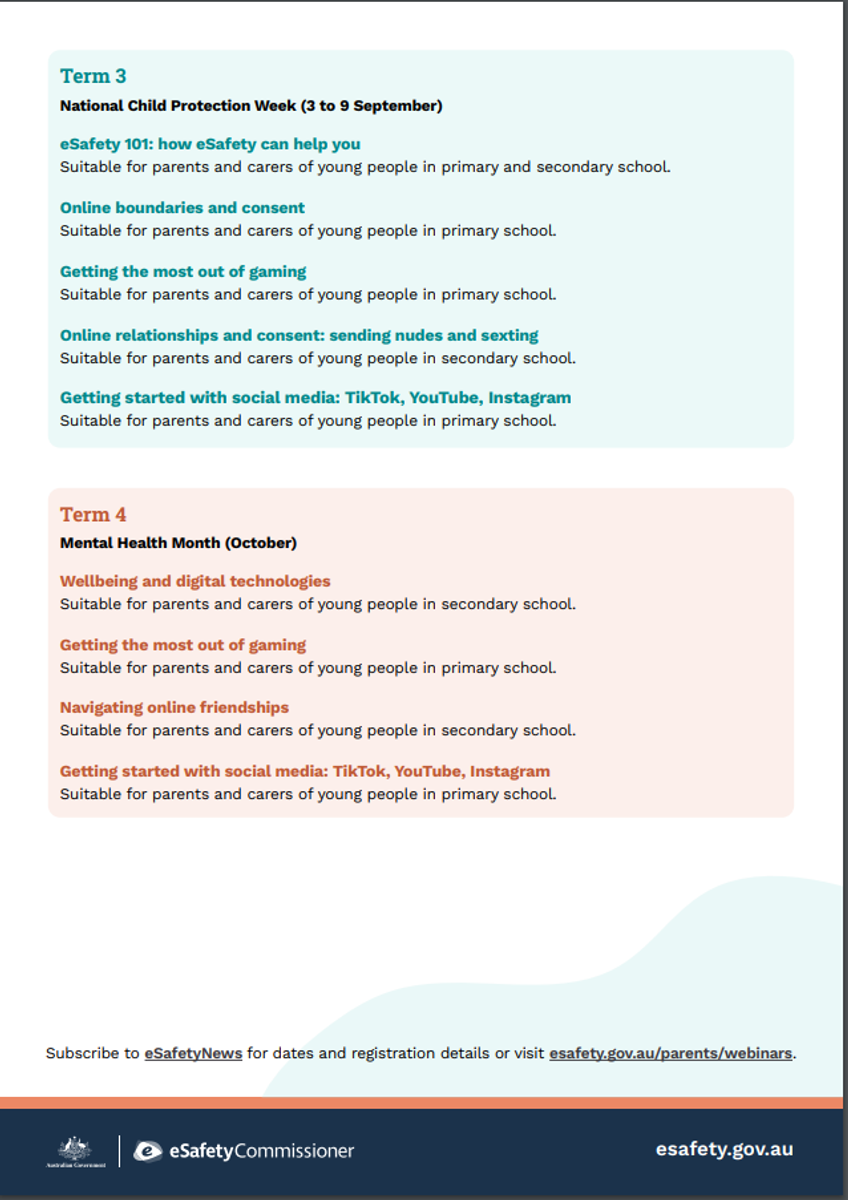eSmart
ACT eSmart - Ask, Check, Think

eSmart
ACT eSmart - Ask, Check, Think
ACT eSafe
No parental control tool is 100% effective.
Helping your child build good online safety habits is just as important.




Every year, eSafety publishes a Gift Guide to support parents and carers with insights and advice on the latest trends and technology. The guide helps you make smart, safe and secure tech gift choices for children and young people.
This year’s Gift Guide focuses on new immersive technology and the practical things we can do to minimise harm for the excited young recipients of tech gifts.
Technology can impact family dynamics, personal safety and wellbeing. So gift thoughtfully and safely these holidays and introduce any new device alongside healthy and safe online habits.
To find this information, jump onto the website and go to the Parents tab.
Stay safe from scammers this holiday season by getting to know their most common scams:
Remember, if you received correspondence regarding an order you weren't expecting, you can verify orders by logging into your Amazon account. Only legitimate purchases will appear in your order history - and Customer Service is available 24/7 to assist.
Here are some important tips so that you can identify scams and keep your account and information safe:
SOME USEFUL HINTS REGARDING ONLINE SCAMMING FROM AMAZON WHICH CAN TRANSLATE TO ANY BUSINESS OR ONLINE SERVICE
If you receive correspondence you think may not be from Amazon, please report it to us. For more information on how to stay safe online, visit Security & Privacy on the Amazon Customer Service page.
Additional resources:
Sincerely,Amazon